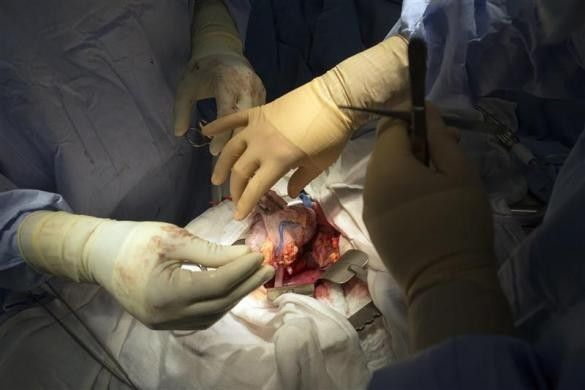Heart Transplant Breakthrough: New Bar Fridge-Sized Device Can Help More Than 30 Per Cent Hearts Receive Transplantations

A new device, in the size of a bar fridge, to preserve hearts after the death of people has been developed so that it can increase the number of organs that can be donated.
The device pumps oxygen and nutrients to flush out the waste and water similar to the processes in the body. It has been developed by Melbourne's Alfred Hospital.
The technique can help keep the heart alive for a period of 12 hours which is triple the amount of time that the current process of preserving hearts in plastic bags inside ice that helps the heart be at a lower temperature, but unable to supply oxygen or nutrients.
Professor Frank Rosenfeldt, hospital spokesman and head of cardiothoracic surgical research, explained that the time that is provided gives the patients in need of a heart transplant an opportunity to access the organ. He also said that a lot of the hearts given for transplant cannot be used for various reasons, the most common one being the patient is far away from the heart and it will take too long before it can be transplanted. Now, Australian patients can receive hearts from New Zealand as well as interstate.
Hearts are taken from "marginal donors," which are taken from older patients or donors whose hearts aren't strong.
The professor continued that hearts that stopped beating might also be transplanted if the heart can be harvested within 30 minutes and preserved with the new technique. In usual situations, a heart beating in a brain-dead donor is considered a normal donor.
An estimation of about more than 30 per cent hearts that could be used for transplantations with the help of this new technique was made by Rosenfeldt. In 2012, 72 Australians received heart transplants, but by the end of that year, 78 more patients were still waiting for a donor heart and about one of five patients die while waiting for a donor heart.





















